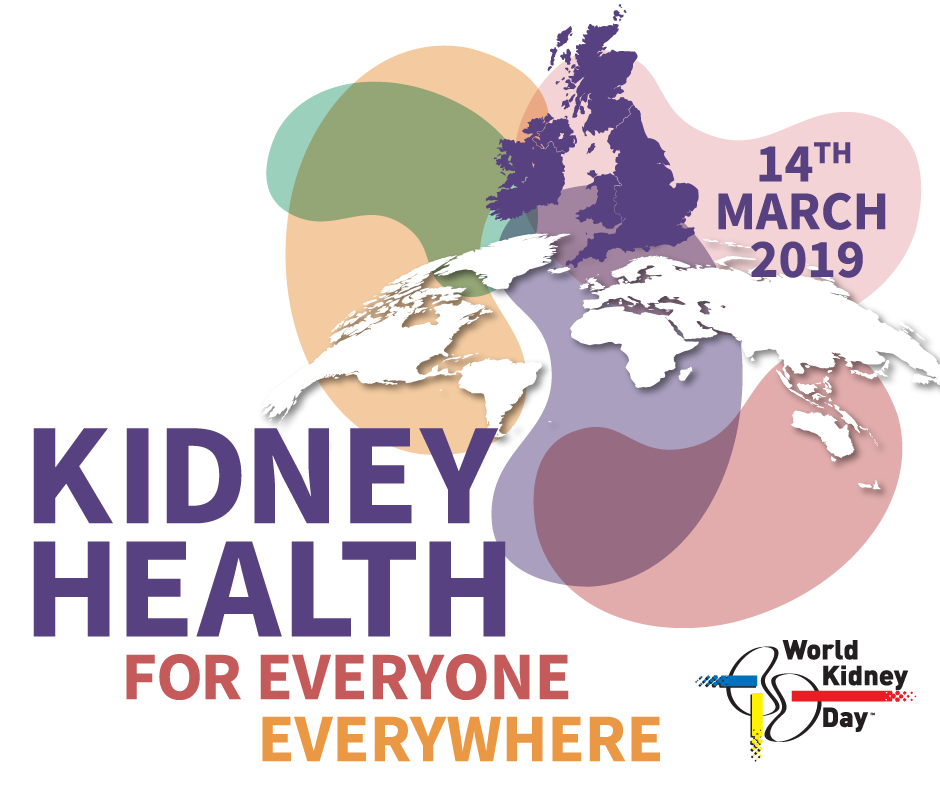
Today is World Kidney Day. You probably don’t think about your kidneys very often. Unless that is, you happen to be someone whose kidneys don’t work very well in which case you probably think about them a lot!

The vast majority of people have two kidneys – positioned in their abdomen. They are pretty clever organs – the circulating blood flows through them and they filter out toxins before the toxins have a chance to build up and cause problems. That’s not their only role. They also balance up the level of fluid and of various salts in our body and produce hormones that help with control of blood pressure, activity of vitamin D and production of blood cells.
Kidney damage can occur from infections, from chronically high blood sugars in diabetes, from persistent high blood pressure and a whole host of other lesson common reasons.

Often mild kidney damage can be present without any symptoms at all. Your kidneys can still perform their function even when not working at anything like 100%. But as function gets gradually worse you are more likely to feel not quite right. Symptoms can be quite non specific, like tiredness. It’s often picked up incidentally when a blood test is performed.
If your kidneys are significantly impaired you may run into other problems. You may need to take tablets or injections to prevent you from becoming anaemic, you may need tablets to balance your body salts. You may need to watch how much fluid you take in over the course of a day to prevent fluid build up in the body. As time goes on if they continue to deteriorate you may get to the point where you need renal replacement therapy or “dialysis” to get rid of the toxins in your body.
Dialysis can be in the form of peritoneal dialysis or haemodialysis.
Peritoneal dialysis involves a tube being permanently inserted into the abdomen. People often do it at home overnight. They insert fluid into the abdomen via the tube. The toxins from the blood stream enter the fluid and are drained out of their abdomen. This kind of dialysis can offer a bit more flexibility for people who are still working.

People on haemodialysis usually attend hospital three times a week, get hooked up to a dialysis machine for several hours while their blood is filtered and the toxins removed. By the end of dialysis they often feel pretty drained.

In this scenario for a certain group of people a kidney transplant can be an amazing gift. Life can be very limited, feeling permanently ill and exhausted and having to constantly think about dialysis. Organs can be donated by living donors – often a family member, or by altruistic donors – people who want to donate but who aren’t genetically or emotionally linked to the recipient – perhaps because they have experienced kidney failure within their own family. Additionally people can sign up to the donor register so that if they have an accident or a sudden illness that results in inevitable death, arrangements can be made for their organs can be donated to an individual on the transplant list.

Both systems are incredibly complex. The live donor list has various chains and links so if you have someone who would like donate to you but you don’t match genetically, they will match you through the scheme to others in the same situation.
In the case of a brain dead donor on life support the organ retrieval team are notified, all sorts of arrangements are put into place incredibly quickly to organise the operating theatres and surgical teams, get hold of the best matched patient from the waiting list and get everyone to the right place on time. It is a very impressive system.

One of the privileges I have at work is my role as an Independent Assessor for the Human Tissue Authority. This means I interview “donor pairs” usually brothers and sisters, or parents and children who have made the decision to donate and receive a kidney. They have gone through all the tests and just need the final legal sign-off to say that there is no evidence of any bribery or coercion etc in their decision making process. We go through the story of the development of their kidney problems, when they discovered that transplant was an option and how and why they went about the process of volunteering to donate. It is a really rewarding part of my job.
Izzy Howat
For further information look at: